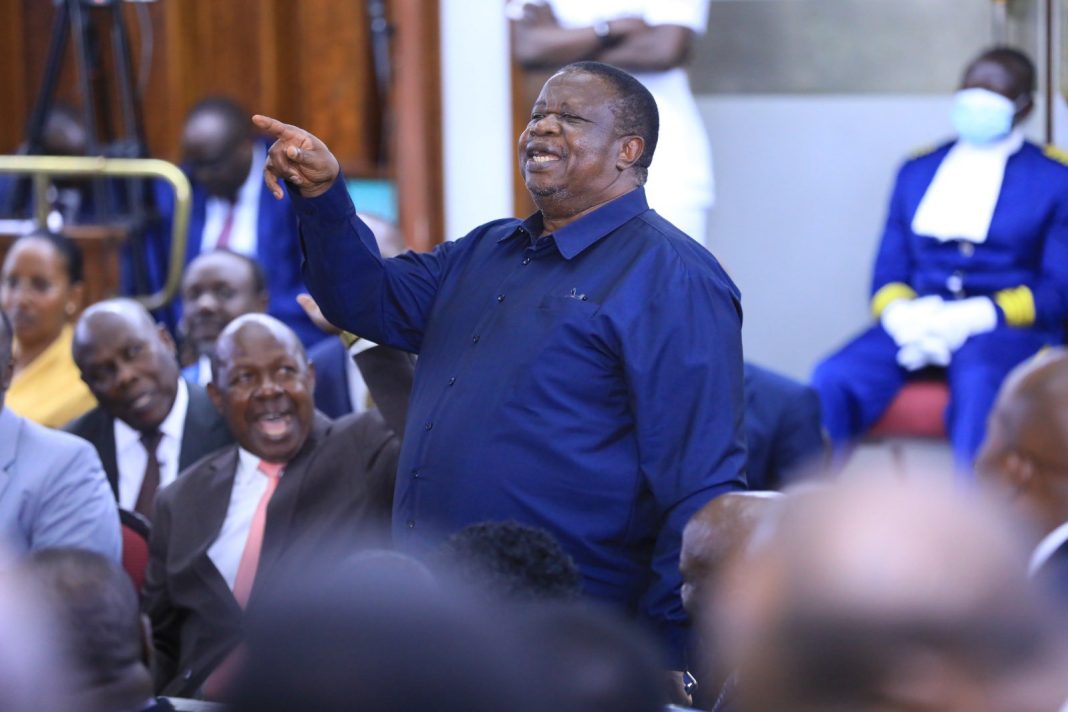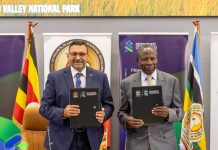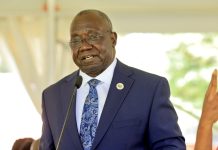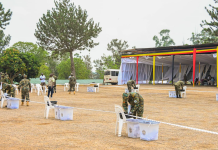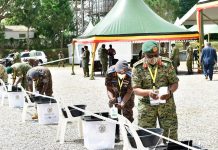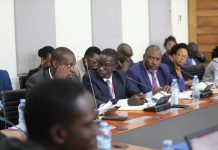Parliament has enacted the Uganda Peoples’ Defence Forces (Amendment) Bill, 2025, which will allow civilians to be prosecuted in military tribunals under specific circumstances.
The Bill introduces comprehensive changes to the military justice framework, reorganizes healthcare services for armed forces personnel, and reforms veteran affairs. It also creates a Directorate of Military Prosecutions to enhance professionalism in handling military cases.
Additionally, the legislation includes safeguards to prevent the premature execution of death penalties until they are ratified by the Supreme Court.
It establishes a clearly defined appellate process for court martial decisions: progressing from the Unit Court Martial to the Division Court Martial, then to the General Court Martial, followed by the Court of Appeal, and finally the Supreme Court.
While presenting the Bill during the plenary sitting on Tuesday, 20 May 2025, chaired by Speaker Anita Among, the Minister of Defence and Veteran Affairs, Hon. Jacob Oboth, clarified that the Bill does not indiscriminately subject civilians to military trials. Instead, it targets individuals involved in military-related crimes.
“This legislation focuses on civilians who unlawfully possess weapons or military gear, impersonate soldiers, or collaborate with the military to commit crimes. I want to reassure the public that this law does not target the general civilian population,” Oboth stated.
Presenting the joint committee’s findings, Hon. Wilson Kajwengye, Chairperson of the Committee on Defence and Internal Affairs, emphasized that civilian trials by military courts should be rare and conducted with full respect for fair trial principles.
The Bill addresses the Supreme Court’s ruling in Attorney General vs. Hon. Michael A. Kabaziguruka, Constitutional Appeal No. 2 of 2021, which declared the existing law allowing civilian trials under the UPDF Act unconstitutional.
Kajwengye pointed out that reforms are needed to restructure the military justice system to promote transparency and independence.
“This demands adjustments in the military hierarchy to ensure judges are appointed through an open process and function without undue influence,” he said.
The legislation amends procedures regarding the structure, appointment, and jurisdiction of military tribunals. Nonetheless, the committee raised several reservations.
“There is ambiguity in the roles and scope of the Military Courts Department, creating potential gaps in oversight and accountability. Merging judicial and prosecutorial responsibilities breaches the principles of natural justice,” Kajwengye warned.
To strengthen judicial integrity, the committee advocated for civilian oversight and the administration of judicial oaths, a proposal endorsed by the House.
“The committee believes that military justice must be governed by legal norms, with court martial judges appointed by the Commander-in-Chief upon recommendation by the Judicial Service Commission, using a list provided by the High Command,” Kajwengye added.
The committee also proposed that appeals from the General Court Martial should proceed to the Court of Appeal.
Regarding military paraphernalia, the committee advised regulating non-UPDF military-style clothing to prevent confusion with civilian garments.
Despite a walk-out staged by members of the Opposition led by Hon. Joel Ssenyonyi, those who stayed in the Chamber put up a strong resistance.
A minority report by Hon. Moses Okot (FDC, Kioga County) denounced the Bill as unconstitutional and in conflict with the Supreme Court’s verdict.
“Clause 30 suggests inserting a new section 117A into the UPDF Act, concerning ‘other persons subject to military law.’ This mirrors Section 117, which was nullified by the Supreme Court,” Okot stated.
He described the move as a blatant disregard for the rule of law and a threat to judicial independence. Okot criticized attempts to reintroduce previously annulled clauses.
“This constitutes contempt of court, which is a criminal offense,” he asserted.
Citing the Supreme Court’s ruling, Okot said: “What Clause 30 revives is a clause that the Supreme Court already abolished. This is not characteristic of a law-abiding democracy.”
He further warned against broadening military court jurisdiction to include civilians.
“The minority observes that criminal charges such as murder, aggravated robbery, kidnapping with intent to kill, and treason are being reclassified as service offences, effectively allowing military courts to handle non-military crimes. This defies Articles 209 and 210 of the Constitution,” Okot argued.
He insisted that military courts are meant for internal discipline within the armed forces, not for general criminal prosecution.
Hon. Jonathan Odur (UPC, Erute South) also opposed the Bill, warning that its enactment marks the beginning of a military-led state.
“If this Parliament passes the Bill, it will be remembered as the dawn of military authoritarianism. This Bill undermines constitutional order and the rule of law. The Supreme Court made it clear—civilians must not be subjected to military tribunals,” he cautioned.
He continued: “Picture a future where opposition leaders, activists, or journalists are brought before military courts. This deviates from the constitutional vision of Uganda.”
Hon. Fox Odoi-Oywelowo (NRM, West Budama North East) successfully moved to suspend Rule 214(14), allowing further discussion on the Bill.
During deliberations, Hon. Gilbert Olanya (FDC, Kilak South) pressed the Attorney General to clarify what qualifies as “exceptional circumstances” for trying civilians in military courts.
Hon. Peter Ogwang, Minister of State for Sports, criticized the opposition’s focus on the civilian aspect, noting that the Bill holistically improves the welfare of military personnel.
“The Court Martial has helped restore order in our communities. Where were you when our livestock was being stolen? Claims that the Court Martial has failed in Karamoja are unfounded,” he remarked.
Hon. Patrick Isiagi (NRM, Kachumbala County) supported the idea that civilians who handle military equipment or arms should be held accountable in military courts.
However, Kampala Central MP Hon. Muhammad Nsereko opposed the provision allowing civilian trials in military courts and called for its removal, though this proposal did not pass.
Despite strong dissent from the minority, the Bill was passed with amendments.


